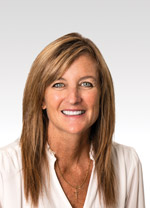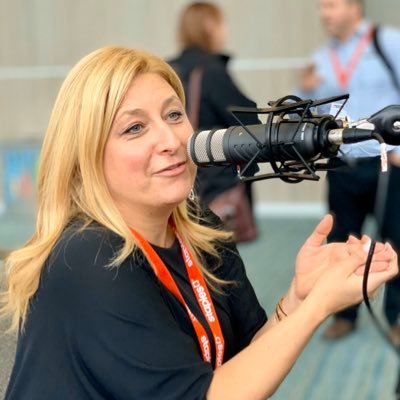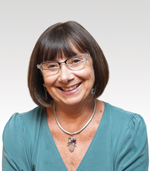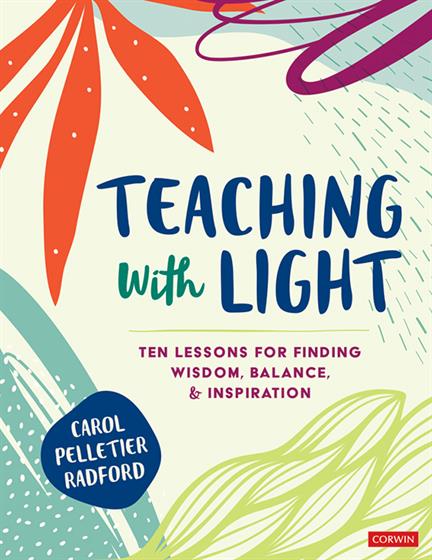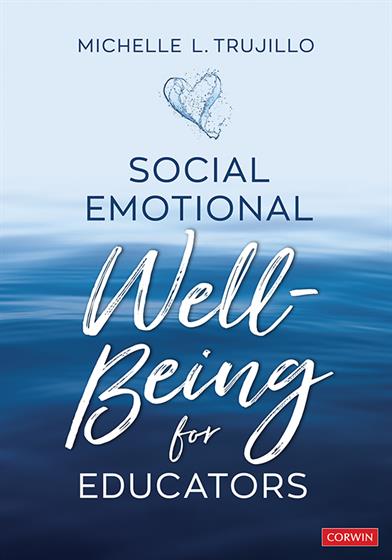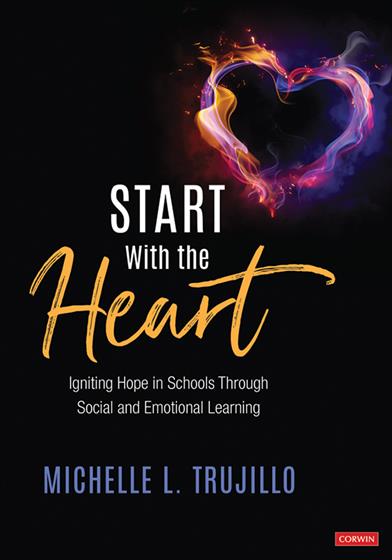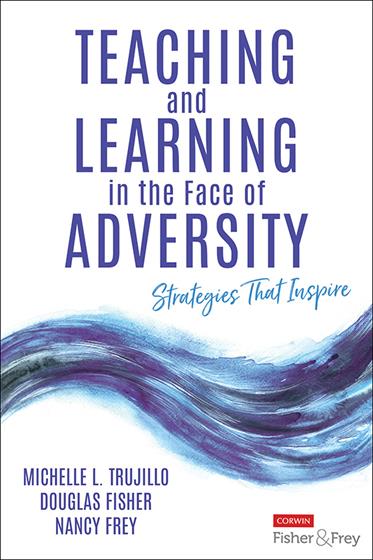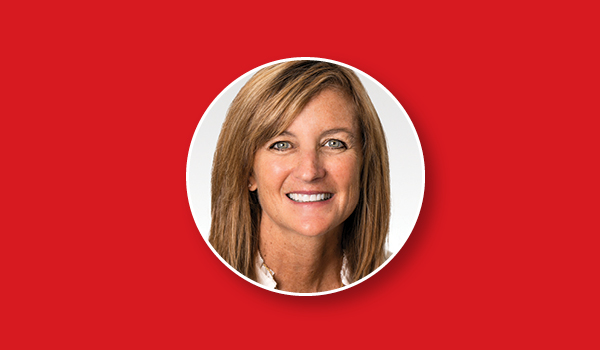[00:00:00.88] [MUSIC PLAYING]
[00:00:03.10] INSTRUCTOR: Welcome to Corwin's Teacher to Teacher podcast
with host Carol Pelletier. Carol is an experienced classroom teacher and
university educator, founder of mentoring and action.com, and author of four
bestselling professional books for teachers. She believes the best form of
professional learning happens when teachers engage in authentic conversations
and share their wisdom.
[00:00:23.99] In every episode, Carol and her guests share stories about
pivotal moments in their careers, successful classroom strategies, and personal
actions they take to minimize stress and stay healthy. The Teacher to Teacher
podcast is a place to engage in authentic conversation and reflection with
experienced educators. We hope these conversations will energize you, keep you
inspired, and remind you why you chose to become a teacher.
[00:00:49.34] CAROL PELLETIER: Welcome to season three of the Teacher to
Teacher podcast. I am your host, Carol Pelletier Radford. And I am happy to be
part of a conversation with two very experienced educators. The theme for
season three is based on the book I wrote titled Teaching With Light, 10
Lessons for Finding Wisdom, balance and Inspiration.
[00:01:16.12] Each of the 10 episodes for this season mirror the 10 lessons
in the book. And today's episode is titled Face The Sun and the Shadows will
Fall Behind You. And before I introduce our guests, I just I just want to share
with the listeners that in this in this book, the 10 lessons, this was the most
challenging story for me to retrieve and share with the public, because this
was a time in my teaching career when my father was very sick, dying of cancer.
So I was dealing with a death of a parent.
[00:02:01.51] I was going through a divorce for a variety of reasons that I
won't share. And I was writing my dissertation at the-- completing it,
hopefully completing it at the Harvard Graduate School of Education. So this,
Face the Sun and the Shadows will Fall Behind You is could tap into some of
your more vulnerable stories and moments.
[00:02:30.20] And our guests are going to help us have a conversation where
we can actually reflect authentically and retrieve some of those, but actually
look at what we can do and what that sun, if you will, is that can heal us and
move us forward so that we can be the best educators and teachers that we can
be. So I just wanted to put that out there so that our listeners would know
that it's a serious conversation, but it also has a lot of hope and sun in the
room.
[00:03:09.15] So here our guests. Michelle and Noa, I'm so happy to have
this conversation with you. And let's begin with Noa. Would you just share what
your role in education is now, how did you get into teaching, and what are you
interested in?
[00:03:30.99] NOA DANIEL: Well, my name is Noa Daniel. This is going to be
my 30th year in the classroom teaching, and I still love it, maybe more now
than ever. I went from being a classroom teacher only to being part-time in the
classroom and consulting. I am the co-founder of The Mentory.
[00:03:48.68] I write children's books. I have contributed to several
chapters. And one of the things I'm so excited about today is to have the
conversation on the metaphor of what you're talking about with facing the sun
and letting the shadow fall behind you. I think it's such a beautiful message,
especially for teachers. There are so many suns out there, and so many ways to
face challenges and to discover our potential through the work that we do.
[00:04:12.98] What was the second part of your question? Because I think--
[00:04:15.79] CAROL PELLETIER: No. You got it. I mean, we're going to keep
going. And I'll ask you more.
[00:04:20.38] MICHELLE TRUJILLO: Nailed it, Noa.
[00:04:20.80] CAROL PELLETIER: Noa, you nailed it. Hi, Michelle. How are
you? Introduce yourself. Let's get started here.
[00:04:27.20] MICHELLE TRUJILLO: Well, thank you. I am so happy to be here.
And really like Noa, for me, this theme, this message today really is what my
entire career was about. So I spent 25 years, over 25 years in the realm
primarily of alternative education as a teacher and then as a high school
administrator. And I just love it. My heart is still in the classroom.
[00:04:54.23] But today I have the honor and privilege of working with
teachers and educational leaders and social workers and school counselors. And
I do that because I truly believe in what we were able to create in our realm
of alternative education, that place of finding the sun for our students. And I
want to share that message with educators. And I am blessed to be able to do
that today.
[00:05:22.00] CAROL PELLETIER: I'm so glad you're both here. We talk about
teaching and education being really, really hard, especially right now. We do
the pre COVID, the post COVID. But I really want to remind everyone that it was
hard before COVID. It was hard. It's always been a challenging career.
[00:05:43.66] And yes, right now, retention of teachers and administrators
and school leaders seems to be a little harder. But I am hopeful with this
conversation and the work that both of you are doing, that we can shine that
light on some messages.
[00:06:03.70] But before we get to some practical things, I really like to
dive into stories, your stories of when did you have a time in your career that
you relate to this message of facing the sun and using something around you to
pull you out of the challenges that were going on. Noa, what comes up for you?
[00:06:33.19] NOA DANIEL: Well, I'm seven years through this story on the
other side of it feeling pretty wonderful. But at the time I was facing many
years of discovering that my principal hated me and in the most complete and
negative way possible. And I'm the kind of person who faces the sun right away.
And I'm like, oh, I'll just work harder and I'll be nicer. And the more I
leaned into it, the worse it got. So
[00:06:57.16] I had to find my humility. I had to make a decision to give up
my tenure and my seniority in the private school that I loved so much and jump
into what was the abyss at the time, hoping that I would land on my feet,
hoping that all of my planning for the other side would allow me to start in
public school where I am and be the teacher that I wanted to be in that world,
but also get to have autonomy and self-direct. And I got to do that. But
getting there was really, really hard.
[00:07:26.33] And Glennon Doyle talks about we can do hard things. And we
say that to our students all the time. But in going through this really
transitional experience of facing a gatekeeper and not letting them keep me out
of what I wanted to do and be and not letting them decide my fate was one of
the most important lessons of my life. And I'm so proud to be in this place.
And it was a really tumultuous journey. But here I am.
[00:07:50.28] CAROL PELLETIER: Yay! Let's get a reaction because Michelle,
you've been a principal and hearing from a teacher like, wow, my principal
hates me, and that reaction--
[00:08:02.77] MICHELLE TRUJILLO: It made my heart hurt, Noa, when you said
that.
[00:08:05.57] CAROL PELLETIER: So-- but it's a leadership perspective that
might-- I don't know-- relate to things that had to be done at the school. We
take things personally. And of course, it's personal, obviously. But what's
your reaction to that kind of a story as a leader? And then we'll get to your
story.
[00:08:27.40] MICHELLE TRUJILLO: Yeah, absolutely. Well, my first thing, as
I said, it made my heart hurt, Noa, to hear you say that, because our feeling--
what we feel is what we feel. And no one can deny that. If you were to say that
to your administrator, he or she may have said, oh, I didn't hate you. But if
you felt that they hated you because of their actions and their behaviors,
obviously you can't take that away. And that's painful. It's really painful.
[00:08:55.78] So I guess my first thought is we all have to be able--
accountability is big in my world and high expectations. We have to be able to
look at what's our part in something. And I think educational leaders find it
very easy to tell their teachers or tell their students what they need to do.
But sometimes as educational leaders, we forget to look at ourselves.
[00:09:20.54] And so I often tell principals, same thing that my grandma
told me as a kid. You're pointing the finger at your teacher, which your
administrator was doing to you, but there are three pointing back at ourselves.
And so we have to be able to own our stuff and look at what's within our realm
of control. And my hope would be that if you were able to articulate to your
administrator how you felt, that that person would have owned their part in it
and said, gosh, sincerely, I am sorry. I had no idea I was making you feel that
way. So often--
[00:09:57.64] CAROL PELLETIER: Or if they did, that was Noa saying, I need
to move on. So these choices, that was brave. I mean, and look at the life that
you've created, Noa, out of that emotional interaction. Any reaction to or
feedback on your story, hypothetically, from Michele's reaction?
[00:10:22.46] NOA DANIEL: I think Michele's reaction is important.
Especially as leaders in education want to look at impact over intention,
although it turned out it was her intention. But that took me years to figure
out.
[00:10:33.10] CAROL PELLETIER: Yeah, yeah.
[00:10:34.90] NOA DANIEL: What you were saying, Michele, and validating. And
it's true with our students to our students can misperceive our feedback and
take it really personally. And it's important to unpack it and create those
opportunities for relationship building and self-reflection. When you have
power, you want to make sure you're using it to empower others. And so often we
forget that the words that we say, the interactions we have, have huge impact.
[00:10:58.19] CAROL PELLETIER: Yes, thank you for underscoring that. So--
[00:11:01.36] MICHELLE TRUJILLO: Noa, I'll add one more thing, Carol. This
is so important because what you did know was created boundaries for yourselves
and for yourself, high expectations for yourself. And you said, I won't
tolerate it. Like you-- it took you time to realize it, you said. And you had
to reflect back. Self reflection is so important.
[00:11:20.46] But we as educators, we have to create boundaries, just as we
do for our students. We have to do that for ourselves. So I'm really-- you
inspire me.
[00:11:30.42] CAROL PELLETIER: Yes, that's inspiring story. So what's your
pivotal, hurtful story. Not that we're trying to-- we're trying to retrieve
things to learn, to learn what we did. And we get to acknowledge and celebrate
the success that Noa that was the learning. That's why we're having these
Teacher to Teacher podcasts. So we can hear each other and someone might say,
you know what, oh my god, I'm not going to do that. I'm not going to wait that
long. I'm going to do my boundaries now, or I'm going to make a decision now.
So what's your message story facing the sun?
[00:12:08.15] MICHELLE TRUJILLO: As Noa began sharing, something occurred to
me that was big in my life as a young teacher. And I had always been living and
working in this world of alternative education. However, there's a part of me,
a big important part of who I am as a person is faith and family.
[00:12:31.62] And I was invited to join a staff at a private Lutheran high
school. And I was so excited about that thinking, oh, not only can I teach, but
I can be in ministry at the same time. And so I left my public education
system, and I went into this new school. And I had all of this hope that this
is where I was supposed to be, to be in ministry.
[00:12:59.24] And every day my heart just told me, this is not right. This
is not-- it just doesn't feel right. And I was so discouraged because I felt
like I was taking a step for the right thing. And what I realized was I was in
ministry in public education. Up against all odds.
[00:13:26.35] So sometimes, we think about-- we don't reflect enough, enough
really on our purpose. Why do we do what we do as educators? Where does that
come from? And in my heart, it was about really being with students who were up
against all odds.
[00:13:47.27] Sometimes in the private sector, we end up interacting and
supporting students who have had some privilege and opportunity that other
students hadn't. So to be able then to look at myself and say, can I admit that
this wasn't the right choice for me and step back into the public setting, and
gosh, just like you know, for me, things blew up then these opportunities to
lead and to open, to found and open an alternative education school.
[00:14:20.01] CAROL PELLETIER: Wow. So both of you were talking about the
listening. It's like the listening to whatever we're calling it, our hearts,
our intuition, our emotional reactions, our behaviors to make choices to bring
the sun. And then we know instantly, wow, I feel I feel good now. This is
working.
[00:14:44.17] But we can't ignore the shadows because the shadows are part
of how we make the choice to move forward and make the choices. And you would
have done great work in the ministry. It isn't that, but those subtle reactions
I'm just in awe that you each knew to listen. And look at you now and how much
you're influencing others, which we're going to get to, all of the ways in
which your messages are bringing sun to many people. Any reaction, Noa, to that
story?
[00:15:23.11] NOA DANIEL: Oh yes. The sun isn't always an external mechanism
influencing you. Sometimes the sun is a compass point inside of you, that when
you take ownership of that, both the positive and the negative, both the shadow
and the joy are drivers for you. And grounding yourself in purpose and knowing
your why is an essential part of an educator in a lesson or a unit. But it's
also in navigating their professional career.
[00:15:53.23] [INAUDIBLE] the self word that you have directionality with
inside of you. And that can help you find your next step. And it's hard to be
true to it. It's hard to trust it. But I think both of those stories really
exemplify that reality, that the sun isn't always outside of us.
[00:16:08.77] CAROL PELLETIER: I love that. And one of the quotes that I
have in the book on a different chapter is "Travel light, live light,
share the light, be the light." And that's the message for our teaching
with light is really we have to stop and find the light inside us, if we have
messages that we want to share with other people. And we're all authors and
hosts and we have a lot to say, the three of us.
[00:16:34.26] So if we want people to listen, what we want to do is ground
or have that internal compass guiding us as to where am I doing the best work.
And Michelle, made that decision because I think we want to be our authentic
selves and be that sun. So thank you for that, Noa. I appreciate that.
[00:16:57.36] For the listeners, I just want to remind you that you can do
these prompts yourself and look to where the sun has not been shining for you
in the past as in my story, and find out who your suns are around you, and how
does this message relate to you.
[00:17:20.16] And on the bonus track of this podcast, you can hear me read
my story. So we'll include that if you're also interested in hearing how that
evolved in a very positive way. So let's move along to practice. How do we
practice? How do we find our suns around us?
[00:17:42.61] Noa, you've got Ted Talks and podcasts and books and
children's story. You have so many resources. What's your message? What do you
want to share with us practically that the listeners can take away?
[00:17:58.82] NOA DANIEL: I think that everybody has avenues out of
themselves, and you should explore different mediums for expressing that. I do
a lot of work with student voice. It's something that I've written about. But
ultimately we can't determine what voice is for our learners. We just need to
create space. And we have to do it for ourselves too.
[00:18:15.56] How do we amplify voice? How do we exercise voice and the
mediums that work best for us? I didn't know I was going to become a podcaster,
but I love it.
[00:18:25.45] CAROL PELLETIER: How did-- yes, that came to you by accident
in some ways. So tell us a little bit about your podcast and how people can
listen to it.
[00:18:35.48] NOA DANIEL: Sure well, I started out as a member of the panel
of what's a podcast show that started for pre-service teachers, and then it
evolved into becoming the show that I hosted for five years on Ed mentors,
where I would invite a panel of educators each week on a different topic
related to education that we were hearing buzz about, that we at the mentor
were trying to respond to. And we did our best to listen to the voices of the
educators and be responsive to them in not only hearing the different
perspectives that they had on each of those topics, but being able to share
them with faculties and with pre-service schools, universities.
[00:19:11.27] So we now have a collection that you can search for by subject
on our mentor website. But you can also go to voice Ed radio and find all of
our shows archived. And it's a really good way to talk about professional
learning and to hear from people in a very short and user friendly amount of
time. But the amount of thinking and the catalyst for conversation that
happened in a podcast, it's a superior platform for learning and listening.
[00:19:37.59] CAROL PELLETIER: I love that. Now I'm interested in the one
minute mentor story. I saw that you did. Is that part of a podcast too, or do
you did you just post? Because I'm into mentoring and supporting mentors and
novice teachers with my books, mentoring in action and my website. So I saw
that and I'm like, what's that all about? The one minute mentor story. How did
that come about?
[00:20:06.38] NOA DANIEL: Well, I like to name things, but really mentor
minutes. I think that there are-- get out of mentorship. And we try to capture
the stories of our mentors who are part of the community who for free, offer
their time and support to teachers at any stage of their career, which is
important because the most support comes in pre-service in the first few years.
But teachers change jobs and roles and want to learn new things.
[00:20:30.36] So mentorship should be a career long experience. And those
nuggets of wisdom that come out of some of those conversations or even podcasts
we try to capture. But I don't always do the best job because I'm trying to do
too many things at once. But I'm glad that you found them. And it's a good--
[00:20:44.25] CAROL PELLETIER: Yes yes. So we have to get those out there.
We'll talk later of how I can link it to my mentoring and action website
somehow so that those stories will continue to inspire. And then let's just
have a little-- what's your student voice, your book, you have a children's
book? What's the title, and what's the purpose, and why did you write a
children's book?
[00:21:06.67] NOA DANIEL: Well, it's my third children's book, but was
never-- again. It's called Strumming the Wild Turkeys. It's one of my favorite
things.
[00:21:12.65] CAROL PELLETIER: Say it again, more slowly, Strumming the
Wild--
[00:21:16.14] [INTERPOSING VOICES]
[00:21:19.19] OK.
[00:21:20.12] NOA DANIEL: Wild turkeys and finds his voice and his band and
becomes not only a part of the band, but the lead singer. And it's a musical
adventure of being yourself and finding belonging, actually. Anyway--
[00:21:32.59] CAROL PELLETIER: Oh, I love that.
[00:21:33.77] NOA DANIEL: I love the work I get to do with it. I created the
website and all the copy. And I'm working with some people to take it to the
next level.
[00:21:40.04] CAROL PELLETIER: All right, we'll get that on the description
so people that are interested can do that. Thank you for sharing all the
practical ways people can connect with your message. Michelle, you have so many
books, several books, bestselling, a new book coming out. Let's hear about your
two books. And then we'll talk about your new book when we celebrate at the end
of the show.
[00:22:04.47] Tell me about the-- start with-- share the titles, because I
think titles really tell us what the author-- where the author's going. So say
the titles of your books.
[00:22:18.20] MICHELLE TRUJILLO: OK. The first one is Start With The Heart.
That's my first core one book. And Start With The Heart-- Igniting Hope in
Schools Through Social Emotional Learning. And really, when I look at who I was
as an educator, I really see myself more as an advocator of hope. I advocate
for hope. And our students often found hope in living and in learning through
the culture that we were able to create at school.
[00:22:48.98] And at the time, social, emotional learning, that term, that
wasn't what it was. The term really was family, second chances, love. These
behaviors that our staff was able to just really embed into who they were as
educators to create a climate for students. And so as you said in the
beginning, somebody said something about we're writers because of the message.
It's about I didn't write because I wanted to become an author, I wrote because
I really believed in what we were able to create.
[00:23:30.02] And then we wanted to be able to share that vision and that
message with others so that they could create it too. We would have
administrators. Many of my students were suspended or expelled from their
traditional setting schools. And they were sent to our school.
[00:23:44.84] We would have administrators walk through the school and they
would say, who is that child? Why are they accomplishing so much here? This
doesn't make sense. And I would say, ask the kids. And the kids would say, it's
about family. It's about love. It's about second chances.
[00:24:01.44] CAROL PELLETIER: I love it.
[00:24:02.90] MICHELLE TRUJILLO: It doesn't mean that we didn't have amazing
teachers that were very committed to best instructional practices. We had to
have a rigorous academic setting to prove that these kids were achieving at the
level that they needed to be achieving at to graduate from high school.
However, if you don't create that culture first, it's very difficult to help
them to open their hearts and minds to learning.
[00:24:31.50] So that's what Start With the Heart was about was that we
really need to meet kids right where they are in order to help optimize their
own learning.
[00:24:40.95] CAROL PELLETIER: And then that's when all the educators say,
so what about me? It's like, yes, I want to go to the counselor. Why are kids
getting all these private sessions with a counselor? If you help me, then I can
do my-- I might influence and ripple out more energy. So you kind of shifted to
educators after that.
[00:25:02.57] MICHELLE TRUJILLO: I did. Yes, I did. So that the book that
was released just a year and a half ago or so, Social Emotional Well-Being for
Educators. And the idea around that book, as you stated at the at the beginning
today, it's not just COVID that created this overwhelming feeling that teachers
are experiencing.
[00:25:24.33] Even prior to COVID, I was hearing from teachers, we have more
behaviors in younger ages than we've ever seen before, and we don't know what
we're going to do. We're just overwhelmed. I want to walk away. And then so
with that, and then COVID, there came all this talk about adult self-care.
Well, unfortunately, you say that to a teacher and they just want to scream.
[00:25:50.10] CAROL PELLETIER: They cringe. They like, I don't need self.
[00:25:53.18] MICHELLE TRUJILLO: Yeah. We don't need one more thing to do.
You're going to tell me one more thing I have to do, and I don't have time for
that. So the idea of social, emotional well-being is it was built around a
framework for educator well-being that really was about identifying behaviors,
specific behaviors. And these came from many, many interviews with many, many
teachers, but behaviors that are inherent to our daily routines already, and
how do we leverage our strengths and identify opportunities where we need
support or growth in these areas.
[00:26:30.89] And the six areas were aligned with social emotional learning
competencies. But they are be reflective, be intentional, be empathetic, be
connected, be accountable, and be equitable. So if we were really able to look
at these six ways of being and say-- and in the book, we have a self reflection
check in so I can look at myself and say, what's really natural to me here and
what's really challenging. And in that, I can identify my individual strengths
as well as where I need to ask for help. And the best part about this, this is
what thrills me.
[00:27:11.13] CAROL PELLETIER: I love this. You're so excited. We got the--
we got the sun, sunshine.
[00:27:16.37] MICHELLE TRUJILLO: Well, and this brings hope to schools
because you have everybody independently check in with themselves. And then
I've created this activity where they can highlight one strength and post it
and highlight one opportunity for growth and post it. And if they do that as a
staff, they can stand back and they can look, and they can go look at all of
these post-it notes on be connected. We are good at that at our school.
[00:27:47.90] We all need help with being intentional. [INAUDIBLE] can
create a goal for our school.
[00:27:55.55] CAROL PELLETIER: I love it. We're getting the-- I hope our
listeners are hearing all the practical ways in which [INAUDIBLE] reaction to
what Michelle's offering us as ways to stay hopeful. What are you hearing?
[00:28:09.81] NOA DANIEL: I'm hearing listening. I'm hearing feeding back
that data to whether it's staff or students, so that they can be part of the
goal setting experience. And that the language of that goal setting is both
affirming and also the kinds of growth minded next steps that people need to
action them. That's what--
[00:28:27.63] CAROL PELLETIER: Wow. Yeah. We've got it. So thank you both
for all of this. This has been a really important conversation and one that can
be vulnerable, but also hopeful as we take our challenges head on. It's like,
let's just take them head on and look at them and apply what the two of you are
saying to enhance that feeling of community really, of connecting and everybody
helping each other.
[00:28:59.93] But I think the teacher is able to ripple out more effectively
when we give these skills and practices and mindset, if you will to all of us
and we practice them. So that kind of leads me as we're winding down to, OK,
how do you to actually stay so positive? As all of our listeners are going, oh
my god, they're dealing with all these challenges, how do you stay inspired?
Because part of that is what keeps you going. So Noa, what do you do that our
listeners might want to do too? I don't know.
[00:29:40.78] NOA DANIEL: For me and for my family and for my students, I
like to make a playlist. I catch a vibe that can change your mood, that can
give you the inspiration that you need, that can help you kind of check out of
the feelings that you have--
[00:29:53.71] CAROL PELLETIER: Like music playlist. So you go on and you
pick out songs. So what would we find on your playlist?
[00:30:01.75] NOA DANIEL: Oh, you will find a lot of classic rock on my
playlist.
[00:30:04.36] CAROL PELLETIER: Oh. Classic rock. Woo.
[00:30:06.97] NOA DANIEL: Just have a lot of Taylor Swift and Olivia Rodrigo
lately. And to be honest with you, Chappell Roan, even though there's some
swearing in there is kind of amazing. That's a really fun way. But when my
students make a playlist, there's like a requirement it has to be certainly
appropriate.
[00:30:24.69] But they love to be played out at the end of the day to one of
their songs, and it's a really nice way--
[00:30:29.43] CAROL PELLETIER: Oh, so you pick a song? The students can
contribute. You make up the playlist. You can put one on. And then everybody
kind of dances.
[00:30:36.27] NOA DANIEL: Playing the class with your song today. And then
[INAUDIBLE] and everybody gets to rock it out as they pack it.
[00:30:41.45] CAROL PELLETIER: I love it. Classic rock. Very good. OK. And
so-- what do you do, Michelle?
[00:30:47.70] MICHELLE TRUJILLO: I love that. Well, first thing I'm going to
do when I get off the podcast is I'm going to create a playlist to rock out
each day. I love that. Love it a lot. For me, it's about seeking joy with
family. And one thing that comes to mind is I ride my bike with my dad,
something we started during COVID.
[00:31:08.24] He's 83 years old. It used to be-- I'd be in front, and I'd
kind of loop back to catch up. Now he is kicking my butt, and I'm trying to
stay caught up with him. And it's just-- it's a beautiful. We take time. We
have to take time, I think to be still.
[00:31:27.73] I go 120 miles an hour. My husband told me once, babe, you've
got to close your tabs. He says, you're-- and I got--
[00:31:37.00] CAROL PELLETIER: Oh, the tabs.
[00:31:39.25] MICHELLE TRUJILLO: Like, what are you talking about? And he
goes, you're like a computer with 20 different tabs open. And not only you
don't shut them down, but you open more. And so we have to take time, he's
absolutely right, to just be in the moment, to be present. We don't do that
enough. I know I don't.
[00:31:58.76] CAROL PELLETIER: So that's. I like that. Close your tabs.
Yeah. As I look at all 20 that are open at the same time. So we're winding
down. And I have two questions for you as we close this episode. How have you
changed over time in your view of either helping people face the sun or your
view of the work that you're doing?
[00:32:27.34] I use Dick Elmore's prompt to guide me. I used to think this
and now I think this. Noa, how would you respond to that?
[00:32:39.22] NOA DANIEL: I used to think learning was about what I was told
I needed to learn or what conferences made me learn. And now I understand that
learning is about me, how I need to learn, and what I need to learn, and my
students guiding me in, helping me fill in the gaps to become the educator that
I want to be. And I'm always evolving. And it's in my control. And that's a
pretty empowering thing.
[00:33:02.32] CAROL PELLETIER: Yeah. Thank you for that. What about you,
Michelle?
[00:33:06.37] MICHELLE TRUJILLO: Yeah, I'm going to piggyback right on that.
I used to think as a young teacher, so much was out of my control and so much
was out of the control of my students. And I would get discouraged about that.
And now I know there is so much within our realm of control, so many strengths
we can reframe our thinking and so many strengths that we can leverage in order
to really focus on creating intentional change around what is within our realm
of control.
[00:33:37.90] CAROL PELLETIER: Thank you for that. All inspiring and
wonderful messages. So let's end with some good news again, inspired by John
Krasinski, who had his COVID show called SGN, Some Good News. So I love to end
the podcast with some good news. What do you want to celebrate? What should our
listeners hear? Noah, what are you celebrating?
[00:34:05.69] NOA DANIEL: I want to celebrate how I got to get to know you.
So--
[00:34:08.48] CAROL PELLETIER: Yay!
[00:34:09.83] NOA DANIEL: After from the entry in mentoring for wellbeing in
schools, edited by Benjamin Katsiroubas and Frances Cochrane. And you also have
a chapter there. And you came on the show. But I really I love the opportunity
to share what we do at the mentoring and how we support teachers. So that's
pretty great news to me.
[00:34:27.94] CAROL PELLETIER: Oh yes, we will be following up. You'll be
helping me create podcast PD. We're going to we're going to keep moving
forward. And what would you like to celebrate, Michelle, as we wind down?
[00:34:41.30] MICHELLE TRUJILLO: Yes, I am so excited to celebrate. I've got
a new book coming out co-authored with Douglas Fisher and Nancy Fry in
September. It's called-- really goes well with the theme of your podcast. It's
called Teaching and Learning in the Face of Adversity. And the subtitle is
Strategies That Inspire.
[00:35:04.17] And really, that's what it's about. How do we engage our
students? How do we nourish wellbeing? And how do we ignite hope? Because that
is within our realm of control. Even though adversity is central to the human
experience, there are skills we can develop and help our students to develop in
order to elevate their adversity quotient.
[00:35:26.52] CAROL PELLETIER: Yeah. So what's one strategy that you're
willing to share? Is there one off the top of your head that just kind of ends?
I know there's 1,000, but--
[00:35:35.48] MICHELLE TRUJILLO: There are 1,000.
[00:35:36.57] CAROL PELLETIER: But is there one?
[00:35:38.18] MICHELLE TRUJILLO: Yeah, we really focus on four, but I will
pick one. And one would be create authentic opportunities to connect. Smiling
authentically. Looking people in the eye when appropriate. Sometimes it's not.
We've got to honor that. Use our students names.
[00:36:02.24] CAROL PELLETIER: I love that.
[00:36:03.65] MICHELLE TRUJILLO: Yeah rather than walking by someone and
saying, how are you, and we keep walking. Stop, look at them, say hello, ask
the question and listen for the answer.
[00:36:14.97] CAROL PELLETIER: Thank you.
[00:36:15.50] MICHELLE TRUJILLO: Because authentic connections matter.
[00:36:18.05] CAROL PELLETIER: And you did that with your dad? Because we
can say find joy. That's not enough for us anymore. We have to be specific. We
have to say find joy by dancing in your kitchen to classic rock. And I would
like you to add to your list is the group, I love Lake Street Dive. Are they on
your playlist?
[00:36:41.52] NOA DANIEL: No, but I'm putting them on right now.
[00:36:43.23] CAROL PELLETIER: Put them on. Lake Street Dive. But that's
authentic. It's like what we're doing. I think on this podcast we want Teacher
to Teacher to be an authentic podcast conversation with all the flaws and blips
and vulnerabilities.
[00:37:01.80] To our listeners, hope you enjoyed it. Thank you for tuning in
to Teacher to Teacher podcast. I want to remind everyone who's listening to
stay inspired, stay healthy, and don't forget to share your good news. And I
hope you'll join us in the next episode, which is titled Be a Ripple.
[00:37:23.84] INSTRUCTOR: Thanks, everyone, for joining today's Teacher to
Teacher conversation. We hope this time together energized you, inspired you,
and reminded you why you chose to become a teacher. You can purchase any of
Carol's books and any books mentioned in the podcast online at www.corwin.com.
[00:37:40.19] Please leave a review and share this podcast with your
colleagues. Thank you for listening to the Corwin Teacher to Teacher podcast. A
place to share teacher wisdom and engage in authentic conversations with
experienced educators.
[00:37:51.29] [MUSIC PLAYING]

